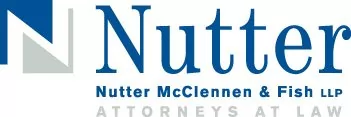On April 13, 2015, the U.S. Food and Drug Administration (FDA) announced the availability of the Center for Diseases and Radiological Health's (CDRH) final guidance document entitled "Expedited Access for Premarket Approval and De Novo Medical Devices Intended for Unmet Medical Need for Life Threatening or Irreversibly Debilitating Diseases or Conditions." This 44-page final guidance outlines the FDA's new Expedited Access Pathway (EAP) program for select medical devices that demonstrate the potential to address life-threatening or irreversibly debilitating, unmet medical needs. The FDA stated that the EAP program will "... help patients have more timely access to these medical devices by expediting their development, assessment and review, while preserving FDA's statutory standard for PMA approval (reasonable assurance of safety and effectiveness) and the statutory standards for granting de novo requests."
The final guidance document details various considerations of the program, such as the types of clinical evidence that may be necessary in order to support approval of EAP devices subject to a premarket approval (PMA). It also references the FDA's 19-page guidance entitled "Balancing Premarket and Postmarket Data Collection for Devices Subject to Premarket Approval," also issued on April 13, 2015, which clarifies the FDA's current policy on balancing premarket and postmarket data collection during PMA review. Additionally, the final guidance document describes the criteria for EAP designation, including several examples to help determine whether or not a medical device qualifies for the voluntary EAP program.
Furthermore, CDRH's final guidance document details a new Program Evaluation that will begin one year from the effective date of the final guidance and will continue annually for three years (April 13, 2016 - April 13, 2019). In the Program Evaluation, the FDA will publish statistics related to the program, including the number of EAP designation requests the FDA received that year, the number of EAP designation requests the FDA granted that year, and for every device approved under the EAP program, the number of serious adverse events reported for that device as well as whether the device was withdrawn or recalled. This Program Evaluation will assist the FDA in determining whether or not changes should be made to the EAP program.
It is anticipated that the EAP program will accelerate approval for eligible devices, and should be strongly considered by applicants seeking approval of eligible medical devices for patients with life-threatening diseases.
This update is for information purposes only and should not be construed as legal advice on any specific facts or circumstances. Under the rules of the Supreme Judicial Court of Massachusetts, this material may be considered as advertising.


